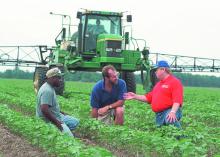Community Broadband Networks Round up Half of ReConnect Round One Awards
Last fall, we reported on the large number of community-owned broadband networks among the applicants for the first round of the U.S. Department of Agriculture’s (USDA’s) ReConnect broadband program, which awards grants and loans to expand rural connectivity.
Since then, the USDA has distributed more than $620 million to 70 providers in 31 states as part of ReConnect round one. Just over half of the awardees are community networks, including rural cooperatives, local governments, community agencies, and a tribal provider. The other ReConnect awardees are locally owned providers. Almost all grant and loan recipients plan to build high-quality fiber networks with the funds.
While the impact will be limited by the relatively modest size of the program and restrictive eligibility requirements, the ReConnect awards will nevertheless lead to improved economic opportunity and quality of life in rural areas. These investments will enable more rural Americans to take advantage of precision agriculture, online education, and telehealth visits — services that are now more important than ever as the nation finds itself in the grips of a pandemic.
Co-ops, Munis Win Big
Approximately 30 rural telephone and electric cooperatives in 16 different states are taking home ReConnect grants and loans from the first round of funding. Co-op awards include a nearly $19 million grant for Alaska-based Cordova Telecom Cooperative, a $28 million grant and loan for Central Virginia Electric Cooperative, and a $2.73 million grant for Emery Telecom for projects in Colorado and Montana.




